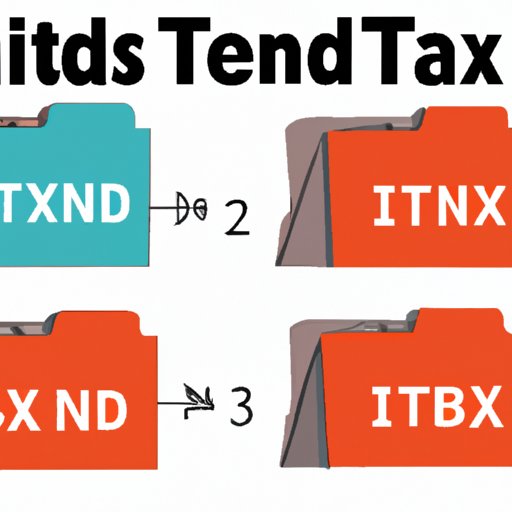
Introduction
A Tax ID Number (TIN) is a nine-digit identification number used by the Internal Revenue Service (IRS) to track tax obligations of individuals and businesses alike. It is also known as an Employer Identification Number (EIN) or Federal Tax Identification Number (FTIN).
If you have started a business, opened a bank account, or hired employees, you may need to obtain a TIN. In this article, we will guide you through the process of obtaining a TIN and the benefits it offers.
Step-by-step guide
The following steps outline the process of obtaining a TIN for your business:
- Determine the type of TIN required
- If you are a sole proprietor and do not have employees, you can use your Social Security Number (SSN) as your business TIN.
- If you have employees or operate a partnership, corporation, or LLC, you will need to apply for an EIN.
- Gather the necessary information
- For an EIN application, you will need to have your business formation documents and personal identification information (SSN or Individual Taxpayer Identification Number (ITIN)).
- For a personal TIN, you will need to have personal identification information (name, SSN or ITIN, address, and birthdate).
- Apply for a TIN
- You can apply online, by mail, by fax, or by phone.
- To apply online, go to the IRS website and fill out the Application for Employer Identification Number (Form SS-4). After submitting the form, you will receive your EIN immediately.
- To apply by mail, download Form SS-4 from the IRS website, fill out the form, and mail it to the address provided on the form. After reviewing your application, the IRS will mail your EIN within four weeks.
- To apply by fax, fill out Form SS-4 and fax to the number provided on the form. You will receive your EIN within four business days.
- To apply by phone, call the IRS Business and Specialty Tax Line at 1-800-829-4933. You will receive your EIN immediately over the phone.
- Update your records
- Make sure to update your records with your new TIN and use it for any tax-related matters.
Infographic
Visual aids can make understanding the process of obtaining a TIN easier. Check out our infographic below for a step-by-step guide:

FAQ
Who needs a TIN?
Individuals and businesses that are required to file federal tax returns, have employees, or operate as a partnership, corporation, or LLC need a TIN.
When should you apply for a TIN?
You should apply for a TIN as soon as you establish your business or receive notice from the IRS that you need one.
What happens if you don’t have a TIN?
If you are required to have a TIN and fail to obtain one, you may face penalties and other consequences, such as being unable to open a business bank account.
What is the difference between an EIN and a SSN?
An EIN is a nine-digit identification number used by businesses to track tax obligations, while a SSN is a nine-digit identification number used by individuals to track tax obligations.
Can you apply for a TIN online?
Yes, you can apply for an EIN online through the IRS website.
Case studies
Here are some real-life case studies of individuals and businesses who have successfully obtained a TIN:
Case Study 1: Sarah’s Bakery
Sarah recently started a home-based bakery and decided to apply for an EIN. She used the IRS website to complete the application and received her EIN immediately. Sarah now uses her EIN to pay taxes and open a business bank account.
Case Study 2: John’s Landscaping
John operates a small landscaping business and has several employees. He applied for an EIN by fax and received his EIN within four business days. John now uses his EIN for payroll taxes and to track his business tax obligations.
Comparison of different methods
The following table compares the pros and cons of different methods for obtaining a TIN:
| Method | Pros | Cons |
|---|---|---|
| Online | Fast and convenient | Requires internet access |
| No internet access required | Can take up to four weeks to receive EIN | |
| Fax | Faster than mail | Requires access to a fax machine |
| Phone | Immediate EIN | May have longer wait times and potential language barriers |
Based on your specific situation, choose the method that best suits your needs.
Benefits of having a TIN
Having a TIN offers several benefits, including:
- Establishing a separate legal entity for your business
- Accessing credit and financing options for your business
- Streamlining tax reporting and avoiding penalties
- Hiring employees and paying payroll taxes
Overall, having a TIN can help you to establish credibility for your business and comply with federal tax laws and regulations.
Conclusion
Obtaining a TIN may seem daunting, but with the information provided in this guide, you can feel confident in successfully acquiring one. Remember, having a TIN offers numerous benefits and is essential for complying with federal tax laws.




